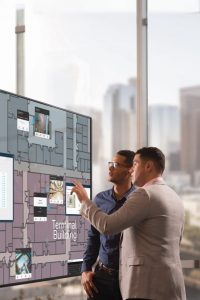2 mins read
HONEYWELL’S ENHANCED BUILDING TECHNOLOGY OFFERS NEW INTERFACES TO HELP IMPROVE DATA VISUALIZATION AND DECISION-MAKING

December 19, 2024
Copyright 2023, IT Voice Media Pvt. Ltd.
All Rights Reserved

 Honeywell , a global leader in connected buildings, today announced its latest smart building technology, Command and Control Suite release 200 (CCS R200), which connects building personnel with data analytics to help drive operational improvements and efficiencies. CCS R200 builds on the original Command and Control Suite by offering more user interfaces to bring building performance data to key personnel, when and where they need it — from building operators and managers to security incident response teams — helping to reduce operational costs, mitigate risk and enhance business continuity.
Honeywell , a global leader in connected buildings, today announced its latest smart building technology, Command and Control Suite release 200 (CCS R200), which connects building personnel with data analytics to help drive operational improvements and efficiencies. CCS R200 builds on the original Command and Control Suite by offering more user interfaces to bring building performance data to key personnel, when and where they need it — from building operators and managers to security incident response teams — helping to reduce operational costs, mitigate risk and enhance business continuity. Building off the basic components of the original Command and Control Suite, CCS R200 is designed with the same ease of use as the Command Wall, which was designed as a collaboration and team decision-making tool, and features map-based visualization and navigation from a single intuitive touch screen. CCS R200 brings that same ease of use to core operational interfaces, the Command Station and Command Console, extending an organization’s ability to turn complex data into easy-to-implement changes to enhance overall building operations.
Building off the basic components of the original Command and Control Suite, CCS R200 is designed with the same ease of use as the Command Wall, which was designed as a collaboration and team decision-making tool, and features map-based visualization and navigation from a single intuitive touch screen. CCS R200 brings that same ease of use to core operational interfaces, the Command Station and Command Console, extending an organization’s ability to turn complex data into easy-to-implement changes to enhance overall building operations.